Hull A63 Castle Street scheme: Huge tents erected for exhumation
- Published
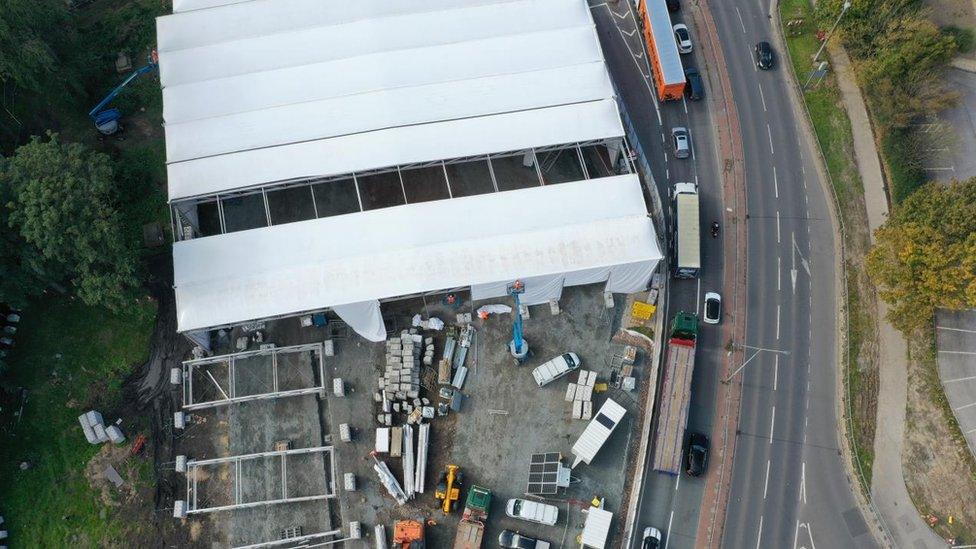
The tents have been erected at Trinity Burial Ground, which was used between 1783 and 1861
Two giant tents have been erected while 19,000 bodies are exhumed from a cemetery on the site of a £392m scheme to revamp a key route into Hull.
The big tops, which have a combined length of 443ft (135m), were installed to provide cover for the archaeological dig on Trinity Burial Ground.
Highways England said the bodies must be exhumed before work could start on the improvements at A63 Castle Street.
The dig, which started this week, is expected to take 12 months to complete.
Both tents stand 23ft (7m) tall, with the largest covering 3,512 sq m and the other 962 sq m.
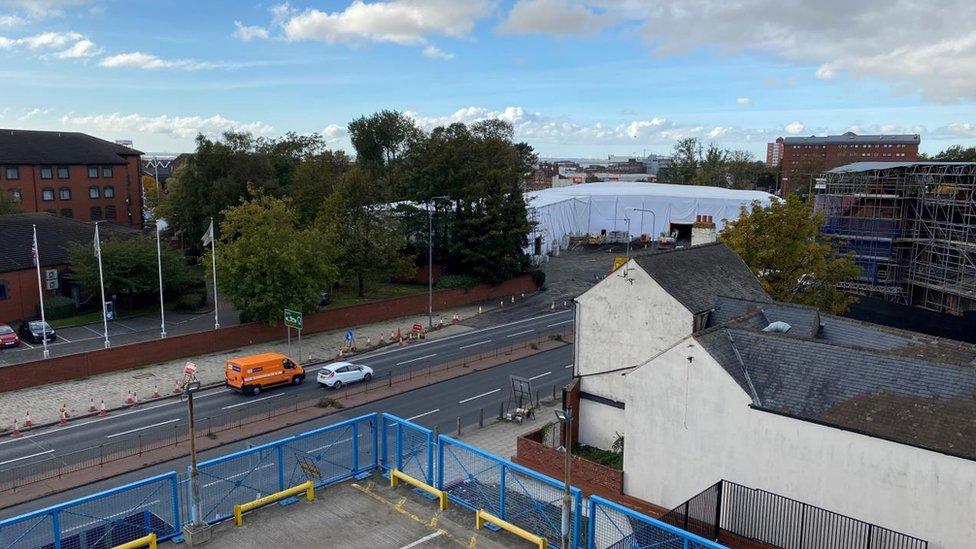
The bodies have to be exhumed before work can start on Castle Street as the disused burial ground "partially lies within" the scheme
They have been positioned over the 237-year-old burial ground, which is "partially within the area where the scheme improvements need to be carried out", Highways England said.
Assistant project manager Frances Oliver said the Church of England had given permission to carry out the exhumation, which was a "delicate, meticulous and sensitive process".
Up to 85 archaeologists will be working at the site, which is not open to the public, during the course of the year.
Highways England said it would be following strict social distancing and "safeguarding measures".
The bodies will be reburied in an unaffected part of the burial ground, which was used between 1783 and 1861.
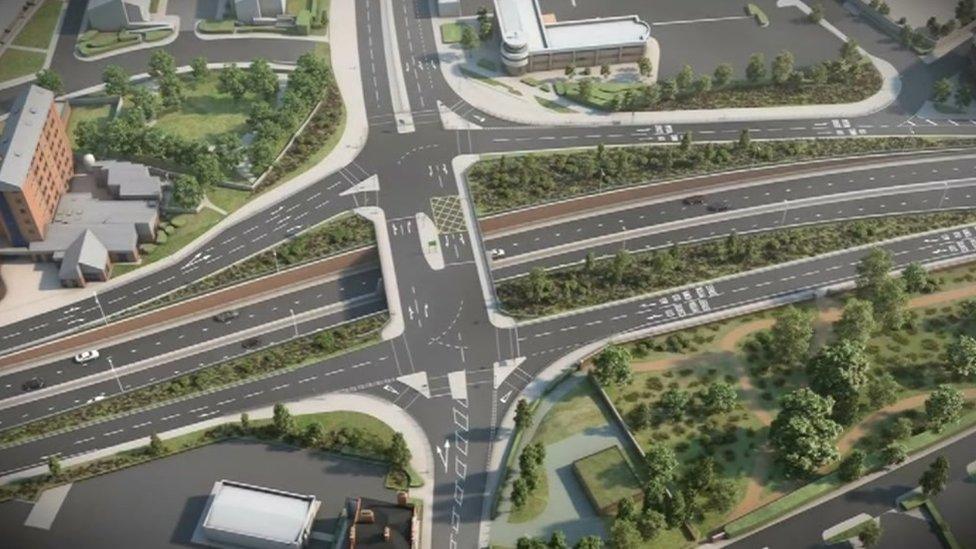
Artist impression of the A63 Castle Street improvement work at the Mytongate junction
Upgrading the mile-long stretch of A63 at Castle Street includes creating a new interchange by lowering the dual carriageway at the Mytongate junction.
Once completed, it would "transform Hull" with "much better" access between the city centre, docks and retail area, as well as easing traffic congestion and improving safety, Highways England said.
Originally it estimated overall costs to be £250m, but this has risen to £392m.

Follow BBC East Yorkshire and Lincolnshire on Facebook, external, Twitter, external, and Instagram, external. Send your story ideas to yorkslincs.news@bbc.co.uk, external.
- Published11 September 2020
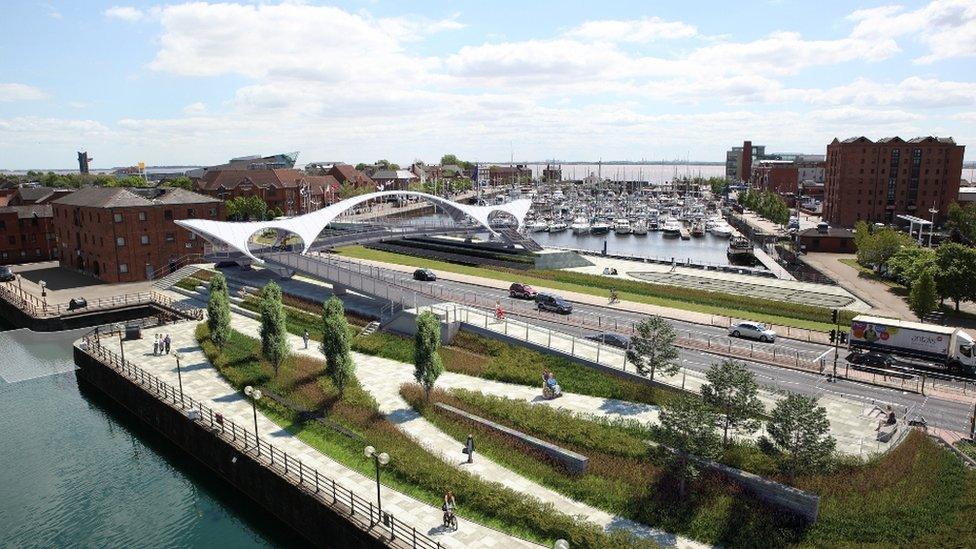
- Published14 March 2018

- Published22 August 2017

- Published10 March 2016

- Published30 November 2015

- Published24 September 2015
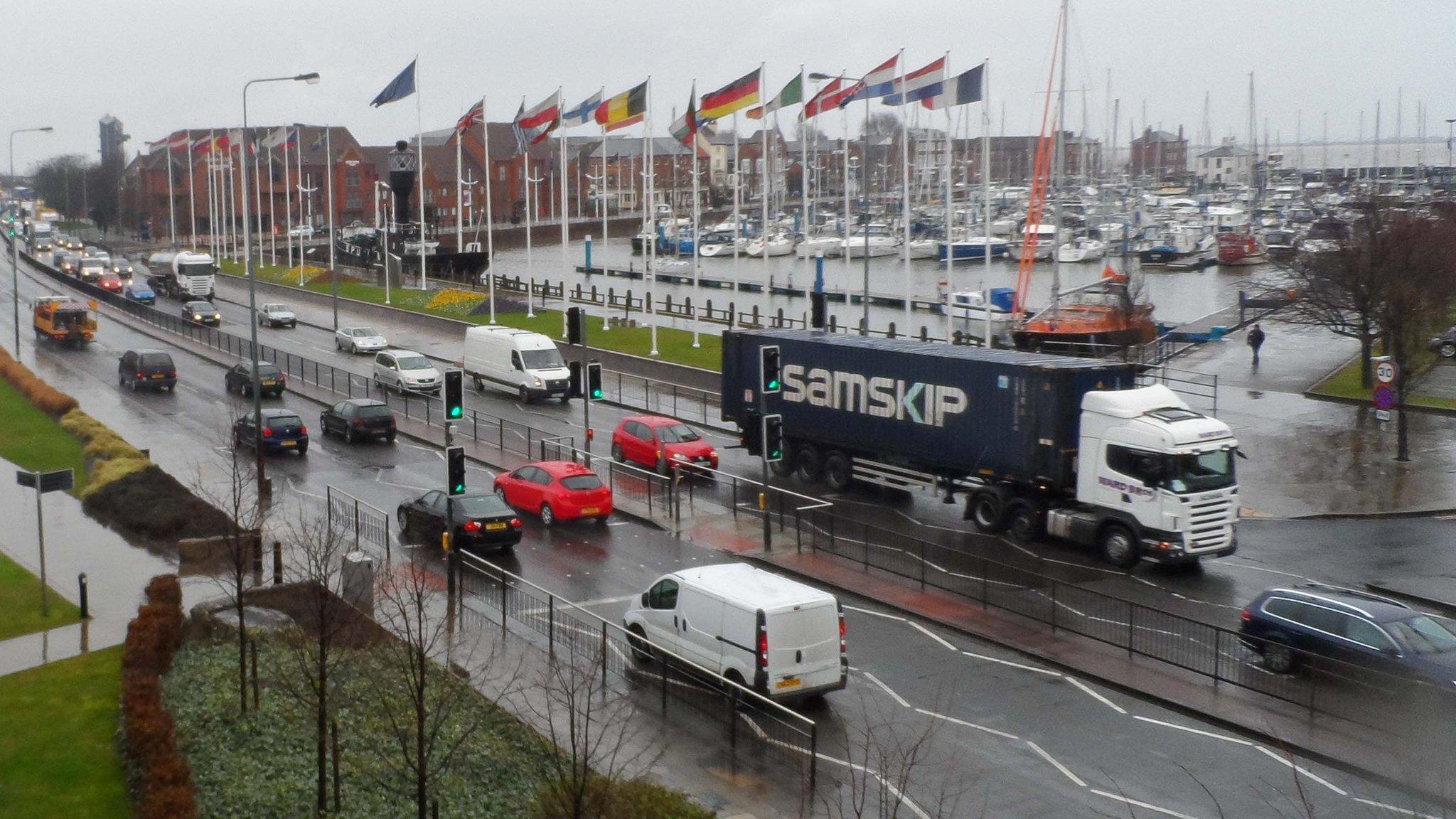
- Published8 August 2014

- Published20 January 2014
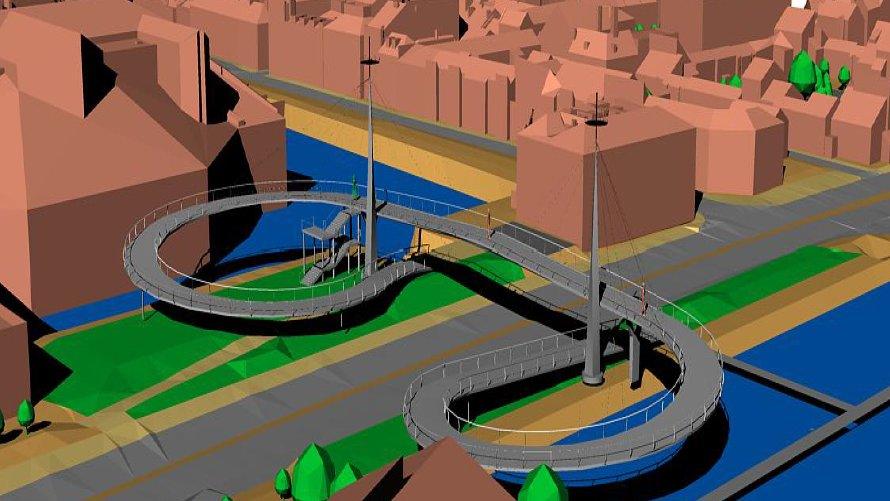
- Published27 June 2013
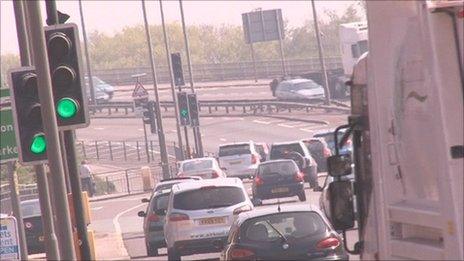
- Published26 April 2011
